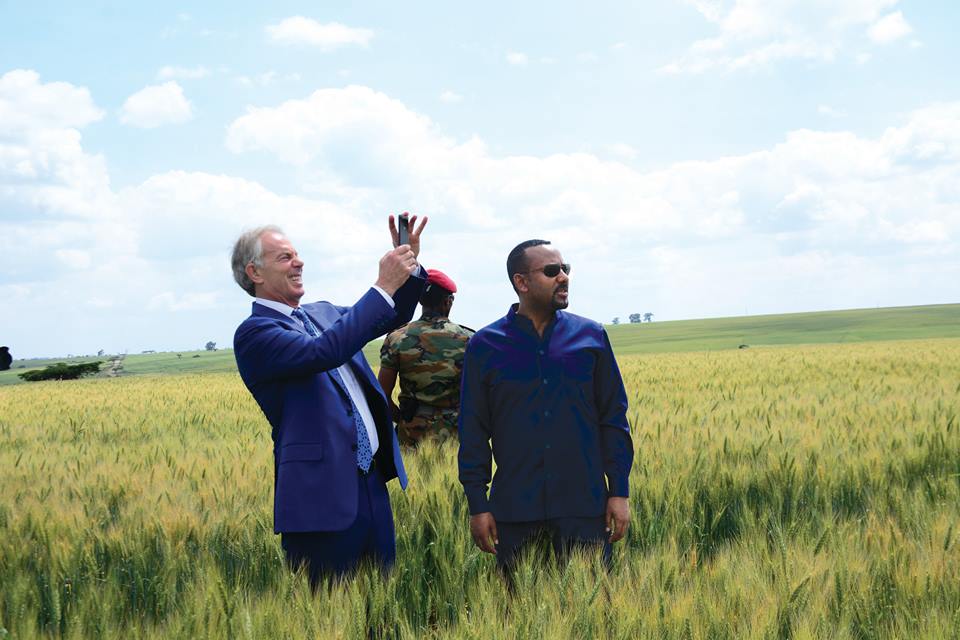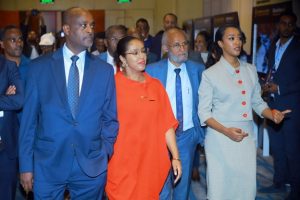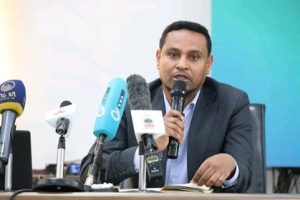
BALE – Former British Prime Minister Tony Blair vowed to take cooperation with the new administration led by Prime Minister Dr. Abiy Ahmed to higher level to enable the latter improve efficiency in its efforts of realizing economic development in Ethiopia.
On Sunday, the Premier and Blair as well as Deputy Premier Demeke Mekonnen and Oromia State President Lemma Megersa paid visits to agricultural clusters that have specialized in Durum wheat production at Ginir administrative district of Bale zone in Oromia State.
“People of memories weigh back in the past about Ethiopia but now you can see a country with a completely different energy and dynamism,” said Blair as he briefed media correspondents following the visits.
Speaking as there is dynamism about the government and the leadership that have been bringing the country together, former British Premier went on to say all of these in the end is economic development.
Hand-in-glove with Dr. Abiy’s administration, Tony Blair Institution for Global Change will work to accelerate government’s efficiency, he pledged.
“There is a coming together in a nice way in all parts of the country. And economic development gives people hope, and ensures the young population to employ their talents.”
Blair also said that he has understood the spirit of what people—assembled in the field to welcome him—were saying which he described it: “We want [the] change and we want it as fast as possible.”
“When someone like me come from outside, it is a boon that I can take the message back to people elsewhere that they should look Ethiopia differently today, they should understand the potential of the country, the great opportunity to come and invest here and help your journey of change,” he stressed.
Regarding the agricultural clusters efforts, he noted that it has been a right combination of local intelligence and energy as well as directional policy.
“I can take this insight and talk to other people about what could be done in Ethiopia.”
Farmers organized in over 133 clusters produce wheat in around 2,350 ha of land in the administrative district’s Arda Kebso area.
Herald December 11/2018
BY WORKU BELACHEW





